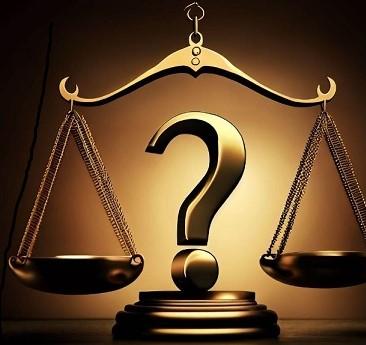What to Expect from Professional Negligence Lawyers in Your Lawsuit

When you find yourself involved in a lawsuit for professional negligence, whether as the plaintiff or the defendant, it can be an overwhelming and complex experience. Professional negligence is when a professional fails to meet the standard of care expected in their field, leading to harm or damage to their client or another party. Common examples of professional negligence include medical malpractice, legal malpractice, accounting errors, and architectural mistakes.
Navigating such a lawsuit requires the expertise of professional negligence lawyers, as they are equipped to handle the legal intricacies and ensure that your case is thoroughly reviewed and prepared. If you’re considering legal action or defending yourself against a claim, understanding what to expect from professional negligence lawyers is essential. In this article, we will walk through the role of professional negligence lawyers and what they do to guide you through this process.
What is Professional Negligence?
Professional negligence refers to a situation in which a professional, such as a doctor, lawyer, accountant, or architect, fails to perform their duties to the standard that is reasonably expected of them. This can happen through actions, omissions, errors, or mistakes that cause harm to their client or third parties. If a professional’s negligence leads to financial loss, physical injury, or emotional distress, the affected party may have the grounds to file a lawsuit.
The Role of Professional Negligence Lawyers
Professional negligence lawyers are specialized legal professionals who help individuals and businesses navigate claims related to professional negligence. Their role includes evaluating the merits of the case, providing expert advice, and representing their client through the legal process. The specifics of what you can expect from professional negligence lawyers will depend on whether you are pursuing the claim or defending against it.
1. Initial Consultation and Case Evaluation
The first step in engaging professional negligence lawyers is typically an initial consultation. During this meeting, the lawyer will assess your situation and determine whether you have a valid case. They will ask questions about the nature of the professional’s actions, whether there was a clear breach of duty, and how that breach led to the harm or damage you experienced.
For example, in a medical malpractice case, the lawyer will inquire about the treatment you received, the outcome of that treatment, and whether the care provider deviated from the standard practices in the medical field. For legal malpractice, the lawyer will review the attorney’s actions, such as failure to meet deadlines or provide appropriate counsel, to determine if negligence occurred.
From this initial consultation, the lawyer will decide whether they can take on your case. If they believe that professional negligence has occurred, they will explain the next steps and provide an overview of what you can expect throughout the process.
2. Gathering Evidence
Once a case is accepted, professional negligence lawyers will begin the crucial task of gathering evidence. This is an essential step in any lawsuit, as the outcome often depends on proving that the professional’s actions fell short of the accepted standard of care.
To build a strong case, the lawyer will:
- Interview witnesses: This could include experts in the field, other professionals, or individuals who may have observed the negligence or its consequences.
- Review documents: This includes contracts, communications, medical records, or any other documentation that may support the claim.
- Consult experts: Professional negligence cases often involve expert witnesses who can testify about the standards in a specific field. For example, a medical malpractice case might require a doctor to review the treatment you received and explain how it fell below the standard of care.
The process of gathering evidence is meticulous and can take time. The goal is to build a case that demonstrates clear negligence and the resulting damages.
3. Legal Analysis and Strategy Development
Once the evidence is gathered, professional negligence lawyers will analyze the case and develop a strategy for moving forward. They will assess whether there are defenses available, such as contributory negligence (where the plaintiff’s actions contributed to the harm) or comparative fault.
In addition to determining the strength of the case, the lawyer will consider the legal avenues available for resolution. They may suggest negotiating a settlement, proceeding with mediation, or pursuing litigation in court. The strategy will depend on the specific details of the case, the likelihood of success, and the potential benefits or risks of each option.
4. Settlement Negotiations
In many cases, professional negligence lawsuits are settled outside of court. Professional negligence lawyers will often engage in settlement negotiations with the other party or their insurer to resolve the case more efficiently and without the need for a trial. A settlement can offer benefits such as:
- Quicker resolution: Litigation can be time-consuming, and a settlement can help you reach a resolution faster.
- Lower costs: Going to trial is expensive, and a settlement can help minimize legal costs.
- Certainty: Settlement guarantees a specific outcome, whereas litigation carries the risk of an unpredictable verdict.
Your lawyer will advise you on whether a settlement offer is fair based on the facts of the case and the potential compensation you might receive if the case goes to trial.
5. Representing You in Court
If the case cannot be settled through negotiation or mediation, professional negligence lawyers will represent you in court. This is where their expertise truly shines, as they are experienced in handling litigation and will argue your case before a judge or jury.
The lawyer will present the evidence, cross-examine witnesses, and make legal arguments to support your claim or defense. They will also prepare you for any questions you may face on the stand. Throughout the trial, the lawyer will work to ensure that your case is presented in the best possible light and that your rights are fully protected.
6. Calculating and Pursuing Compensation
One of the most critical aspects of a professional negligence lawsuit is determining the compensation you may be entitled to. Professional negligence lawyers will assess the financial, emotional, and physical impact of the negligence to calculate potential damages.
This could include:
- Medical expenses: In cases of medical negligence, compensation may cover past and future medical costs for treatment required due to the negligence.
- Lost wages: If the negligence caused you to miss work, compensation may be awarded for lost income.
- Pain and suffering: For some cases, non-economic damages like pain, suffering, and emotional distress may be included in the compensation claim.
- Punitive damages: In some cases, punitive damages may be sought if the professional’s actions were particularly egregious.
Your lawyer will help ensure that all potential damages are taken into account and work to secure the maximum compensation possible.
7. Ongoing Legal Support
Even after the case is resolved, professional negligence lawyers can provide ongoing support if any issues arise, such as enforcement of a judgment or handling an appeal. Their role doesn’t necessarily end with a court ruling; they will ensure that you receive the compensation owed and help you with any post-litigation needs.
Conclusion
Professional negligence cases can be complex, requiring expert legal guidance to navigate. Professional negligence lawyers play a vital role in guiding you through the process, from evaluating your case to representing you in court or negotiating a settlement. Whether you’re seeking justice for damages caused by a professional’s failure or defending against a claim, having an experienced lawyer on your side can make all the difference. By understanding what to expect from your lawyer, you can feel confident in knowing that your case is in good hands and that your rights are being protected.







